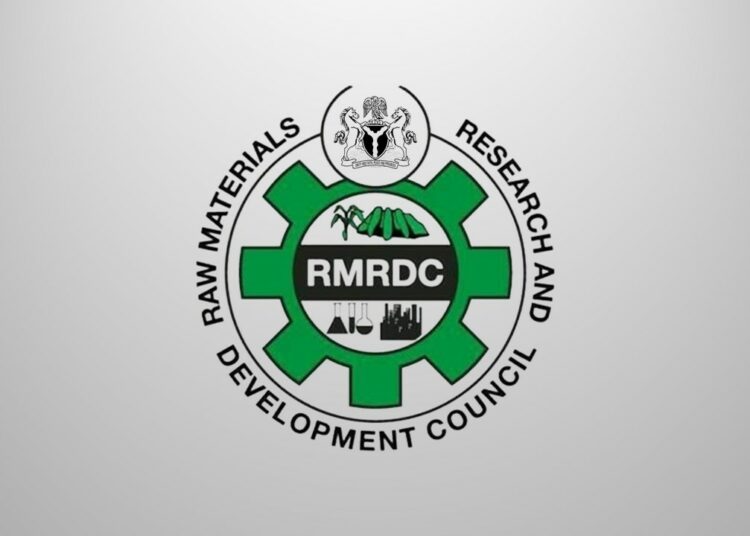Support is growing for the Raw Material Research and Development Council (RMRDC) Bill, which is currently before the National Assembly. Stakeholders in Nigeria’s local manufacturing sector describe the proposed legislation as a significant step toward strengthening domestic production.
At a public hearing organised by the Senate Committee on Science and Technology yesterday in Abuja, experts and industry leaders gave positive feedback on the proposed legislation, which seeks to mandate 30 percent local processing of raw materials before export.
The bill, sponsored by Senator Nwebonyi Onyeka Peter (Ebonyi North Senatorial District), scaled the second reading in the Senate last December. It aims to amend the RMRDC Act 2022 to prioritise domestic production and local manufacturing.
The secretary-general of the Academic Staff Union of Research Institutes (ASURI), Prof. Theophilus Ndubuaku, expressed concern over Nigeria’s long delay in prioritising value addition to raw materials.
He lamented that the country remains an exporter of unprocessed resources with no strong foundation for finished products.
While calling for the bill’s timely passage, Ndubuaku noted that ASURI, which oversees over 300 research centres and institutions nationwide, understands the transformative impact such a law could have on Nigeria’s economic landscape.
He emphasised that the bill is essential for tackling poverty, generating wealth, and creating employment opportunities. According to him, the proposed legislation is not just a short-term solution but a long-lasting framework that will outlive its proponents.
Also, Chris Oputa, director-general of the Nigerian Association of Small-Scale Industrialists (NASSI), decried the economic losses Nigeria suffers due to a lack of value addition to its raw materials, particularly in agriculture.
He pointed out that while other countries insist on processing their produce before export, Nigeria continues to miss out on significant revenue and job opportunities.
Oputa also raised concerns about the undocumented export of goods, stating that most Nigerian products are smuggled illegally through unmanned borders.
“This illegal trade prevents the country from accurately assessing the true value of its exports beyond crude oil,” he said.
He stressed that many of Nigeria’s key exports are transported daily through landlocked neighbouring countries without official records, resulting in billions of dollars lost to illegal trade.
“If this bill is passed, foreign investors will have no choice but to establish factories here. Nigerian crude oil is used to make plastic for phones abroad—we can make it here, or we can insist that they come and manufacture the phones in Nigeria,” Oputa stated. “This is just the beginning. We will fight alongside our partners to ensure this happens in Nigeria.”
The proposed legislation has also received support from key regulatory bodies.
Dr Ifeanyi Chukwunonso Okeke, Director-General of the Standards Organisation of Nigeria (SON), represented by Bature Muhammed, expressed full support for the bill.
“We have reviewed the proposed amendment and support it. We have not submitted any memorandum because there is no objection,” he said.
Similarly, Nancy Chukwura, head of legal services at the Nigerian Investment Promotion Commission (NIPC), affirmed the commission’s support, stating that the bill aligns with NIPC’s mandate to promote, encourage, and coordinate investments in Nigeria.
She emphasised that the requirement for 30 per cent local processing of raw materials before export would significantly boost investment opportunities. It would also create a more attractive business environment, encouraging both domestic and foreign investors to establish industries in Nigeria.
In his address, Senate President Godswill Akpabio described the bill as a transformative step toward securing Nigeria’s economic future.
Represented by Senator Nwebonyi Onyeka Peter, Akpabio lamented that Nigeria’s continued export of raw materials in crude form allows foreign industries to reap the benefits of processing while the country loses out on economic growth, job creation, and industrial development.
“The bill before us is a game-changer. It enshrines a fundamental economic truth: no nation can attain true economic greatness by exporting its wealth in its crudest form without adding value,” he said.
“This bill seeks to make it mandatory that every raw material available in Nigeria be processed to at least 30 percent before export. By doing so, we will create jobs and add value to the economy,” he added.
With broad support from industry leaders, regulatory agencies, and lawmakers, the RMRDC Bill appears to be gaining traction and could mark a turning point in Nigeria’s industrialisation efforts.







